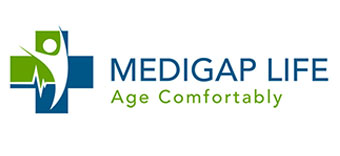- A provision in the GOP’s HEALS Act bill would keep 2020 premiums for Part B — outpatient coverage — in place for next year instead of adjusting them upward.
- The idea is to protect Medicare’ 62.5 million beneficiaries from a spike in Part B premiums, which is anticipated partly due to less money flowing into the program in the midst of pandemic-related economic troubles.
- However, beneficiaries would pay an average $3 extra monthly until the shortfall caused by holding premiums steady is recouped, according to a Senate Finance Committee summary of the provision.
Medicare beneficiaries would get a reprieve on higher Part B costs next year in the coronavirus relief package proposed by Republicans in the Senate on Monday.
Under the provision included in the GOP proposal, called the HEALS Act, premiums for Medicare Part B in 2021 — which covers outpatient care and medical supplies — would be frozen at 2020 levels. However, beneficiaries would pay a monthly surcharge averaging $3 monthly, until the shortfall, the result of holding premiums steady, is recouped, according to a summary from the Senate Finance Committee.
The idea is to protect Medicare’ 62.5 million beneficiaries — the majority of whom are age 65 or older — from a spike in Part B premiums due in part to reduced money flowing into the program from pandemic-related economic troubles. Premiums related to Medicare are recalculated each year and take effect every January.
More from Personal Finance:
Online tool helps you prepare for a tricky retirement cost
A will doesn’t cover all your bases for end-of-life decisions
How to choose a ‘Medigap’ plan that’s right for you
This year, the standard Part B premium is $144.60, although higher earners pay more through income-related surcharges, which also would remain the same for 2021. Other enrollees pay less than the standard due to being “held harmless” — that is, their premium cannot rise by an amount larger than the annual cost-of-living adjustment, or COLA, applied to Social Security benefits.
For Part A, which covers inpatient hospital, skilled nursing and some home health-care services, most Medicare beneficiaries pay no premium because they have enough work history to qualify for it premium-free. Part D, which covers prescription drugs, also comes with income-related surcharges on premiums — which can vary depending on coverage — for higher earners.
The GOP bill lacks some Medicare changes on advocates’ wish list that were included in the Democrats’ version of a relief bill, the HEROES Act, which cleared the House in May and hasn’t been taken up by the Senate. Leaders from both parties now must hash out their differences between the two measures, and it’s uncertain when a final package will emerge that can pass both chambers.
The bill also would extend certain rules that expand the use of telehealth for Medicare beneficiaries during the pandemic.
Separately, the measure includes another round of $1,200 stimulus payments, structured similarly to the first payments authorized under previous legislation. Those payments were up to $1,200 per individual and $2,400 per couple, and $500 per dependent child under 17. That age cutoff for dependents would be removed.
The bill also would provide $200 a week in extra unemployment benefits for a set time until states could implement systems to pay 70% of a person’s income. The current $600-a-week extra in federal unemployment money ends this week.
✔️ Get the benefits that you need – Vision, Dental, Hearing, Transportation, SilverSneakers, Prescription Drug Plans, Over the Counter Benefits.
#medigaplife #medicare #medicareadvantage #medicaid #seniors #covid-19 #coronavirus#disability #partd #vision #dental #hearing #otc #transportation #diabetic #disabled
Read More at https://www.cnbc.com/2020/07/28/gops-proposed-heals-act-would-freeze-medicare-part-b-premium-for-2021.html

 How to Wear a Face Covering
How to Wear a Face Covering 

